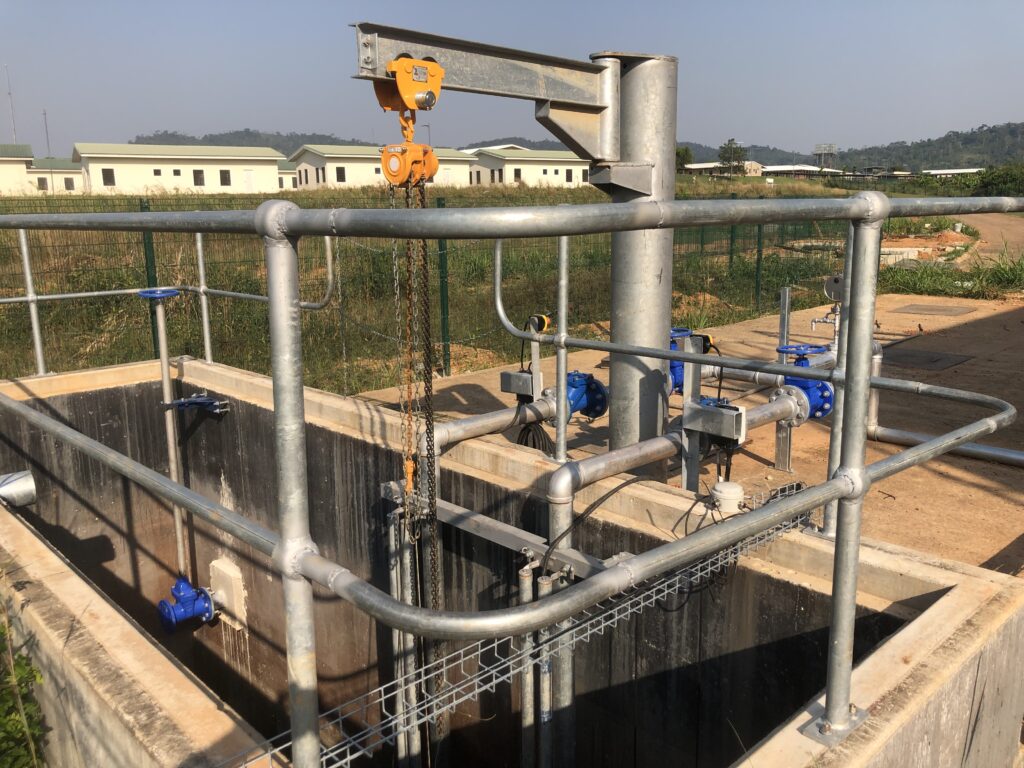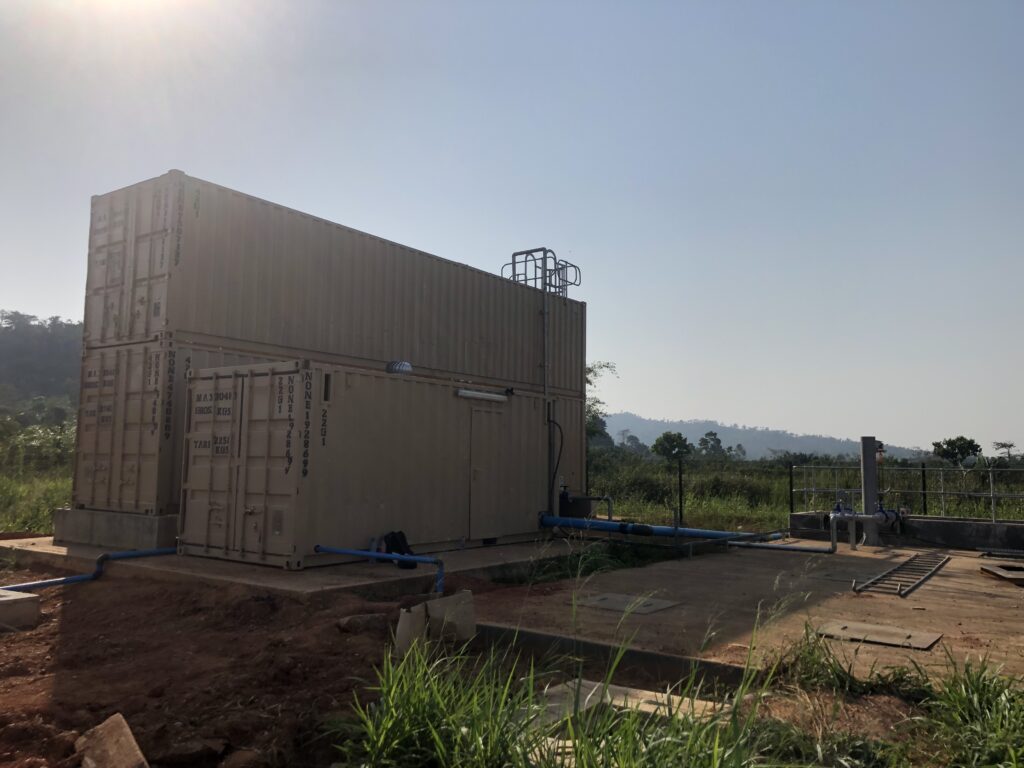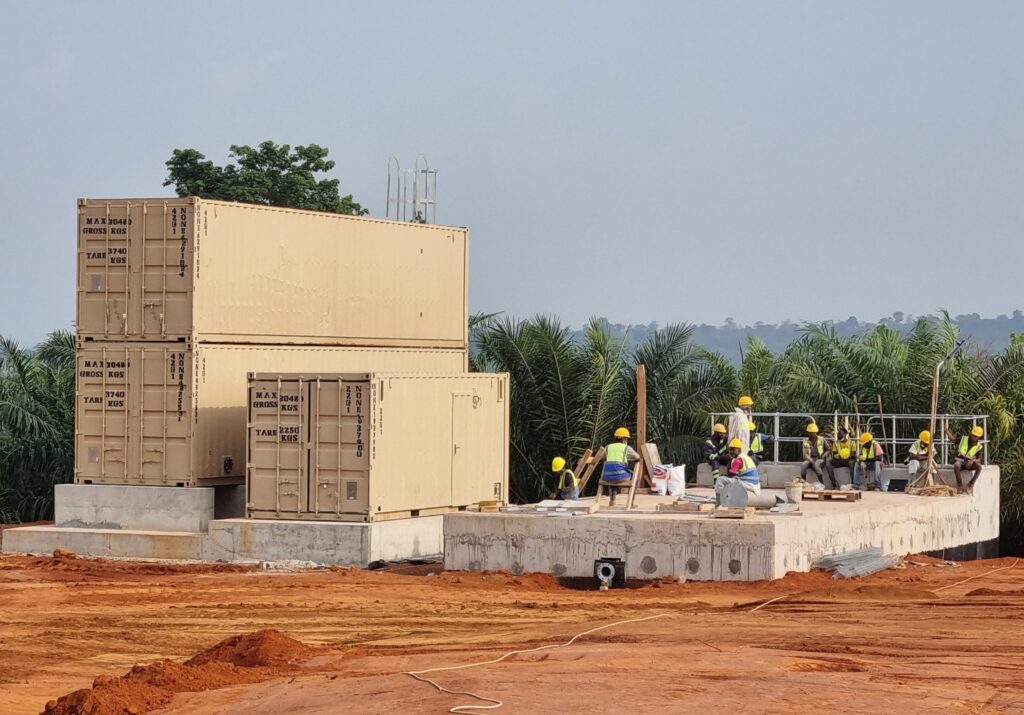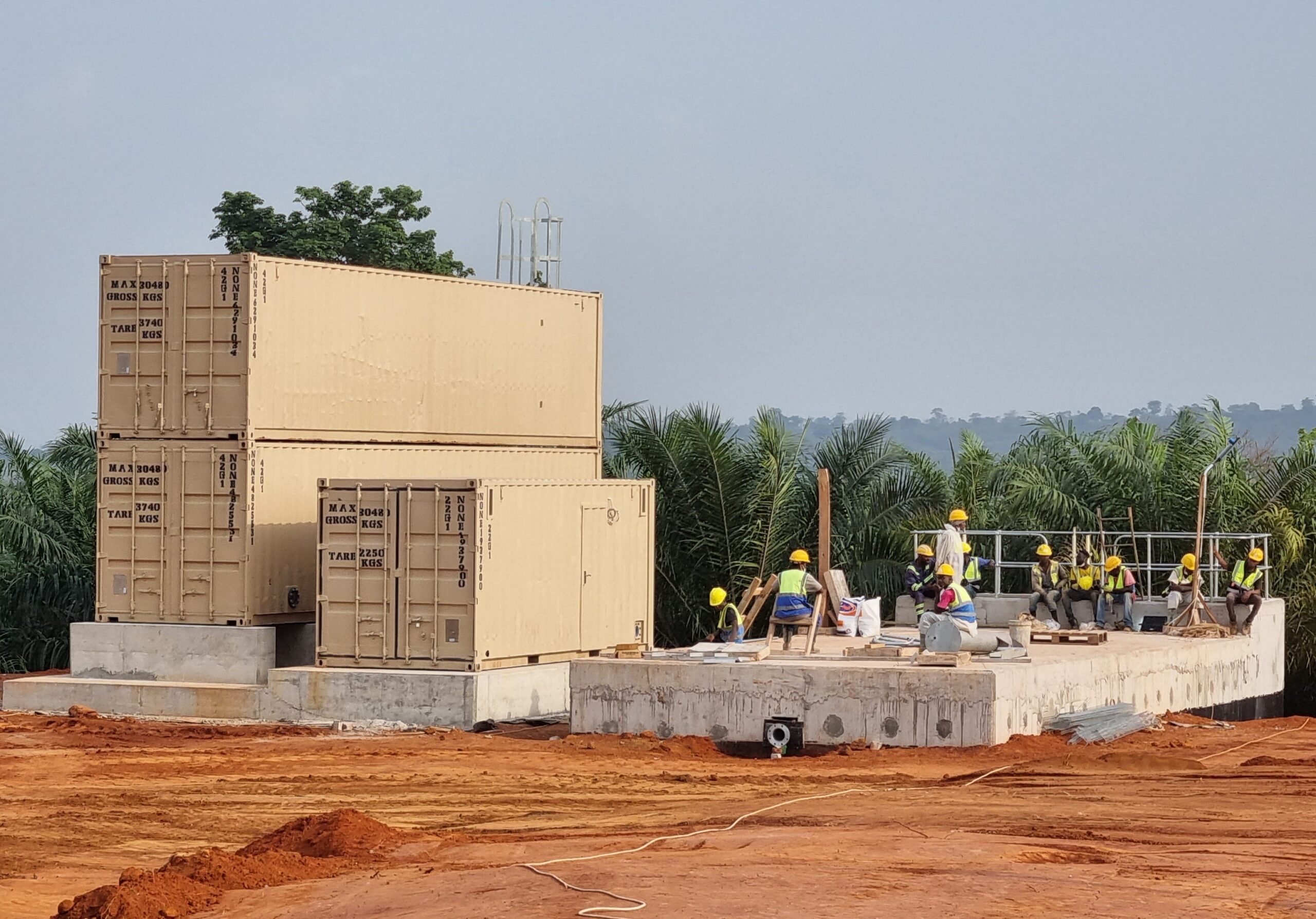WEC Projects, a local EPC contractor working in the water and wastewater treatment sector, has completed the design, engineering and supply of new sewage treatment plants for three different developments in Ghana – two hospitals and an apartment complex. All three projects integrate biological trickle filtration systems.
The treatment plants will be installed at the Kumawu District Hospital, a new medical facility being built in the Sekyere Kumawu District, and the Fomena District Hospital, also a new facility located in the Adansi North District. WEC Projects is supplying the Model E trickle filter plant for both hospitals, designed to treat an average of 90m3 per day. Raw sewage is fed into the plant’s screenings box before arriving at the three-chamber below ground septic tank where anaerobic pre-treatment takes place.
The wastewater then flows into a recycle sump equipped with vortex pumps with a transfer rate of 25m3 per hour across the trickle filter. The trickle filter itself is housed in two above-ground double stacked 12m containers. The wastewater flows down through trickling filter media on the surface of which propagates the biofilm used to breakdown COD and nitrify the wastewater. The wastewater is collected in a basin at the bottom of the packing media and transferred to the clarifier.
A splitter box returns some of the wastewater to the trickle filter to ensure a continuous flow through the bioreactor. Phosphorous is removed from the wastewater by introducing ferric chloride to the clarifier. The water then undergoes disinfection using chlorine to meet the required effluent standards before being discharged into the environment. All process control instrumentation and electrics are housed in a six-metre shipping container and the self-contained plants are fully fabricated in South Africa.
The apartment complex, located in the coastal city of Sekondi-Takoradi, is a smaller system with a current flow rate of 16m3 per day of effluent which will increase once it reaches its peak flow rate. It features a trickle filter system similar to those of the two hospitals, although on a smaller scale, in a standalone tower. The plant will treat domestic wastewater and has been designed to blend into the aesthetics and colour of the apartment complex design as well as to reduce its overall footprint and to avoid contact with nearby overhead power lines.
Says Ashly Forster, Project Manager at WEC Projects, “As these are new plants, the initial flow rate of untreated sewage will be low due to the low occupancy. This will build up over a short time, allowing the plants to operate more effectively as the biofilm begins to propagate.”
“A five-person team from WEC Projects oversaw the installation of the plants and provided training to operators during the commissioning stage. Trickle tower technology was chosen for these projects due to its scalability, low maintenance, operating requirements and simple design. A single operator can oversee and control the plant which is extremely reliable with a long operating lifespan. Ensuring that these plants remain operating efficiently is particularly important in order to ensure that no untreated wastewater enters the environment.” Adds Forster,
“Our WEC Assist division will offer to provide operations and maintenance where necessary as well as chemicals, consumables and spares when required.”



The Model E biological trickle filtration plant during installation at the Fomena District Hospital in the Adansi North District, Ghana will treat 90m3 of sewage per day.
The Model E biological trickle filtration plant during installation at the Fomena District Hospital in the Adansi North District, Ghana will treat 90m3 of sewage per day.
The trickle filter plant being installed at the Kumawu District Hospital, a new medical facility being built in the Sekyere Kumawu District in Ghana


